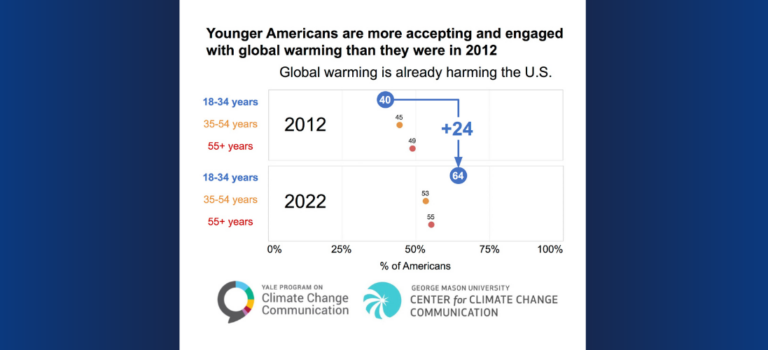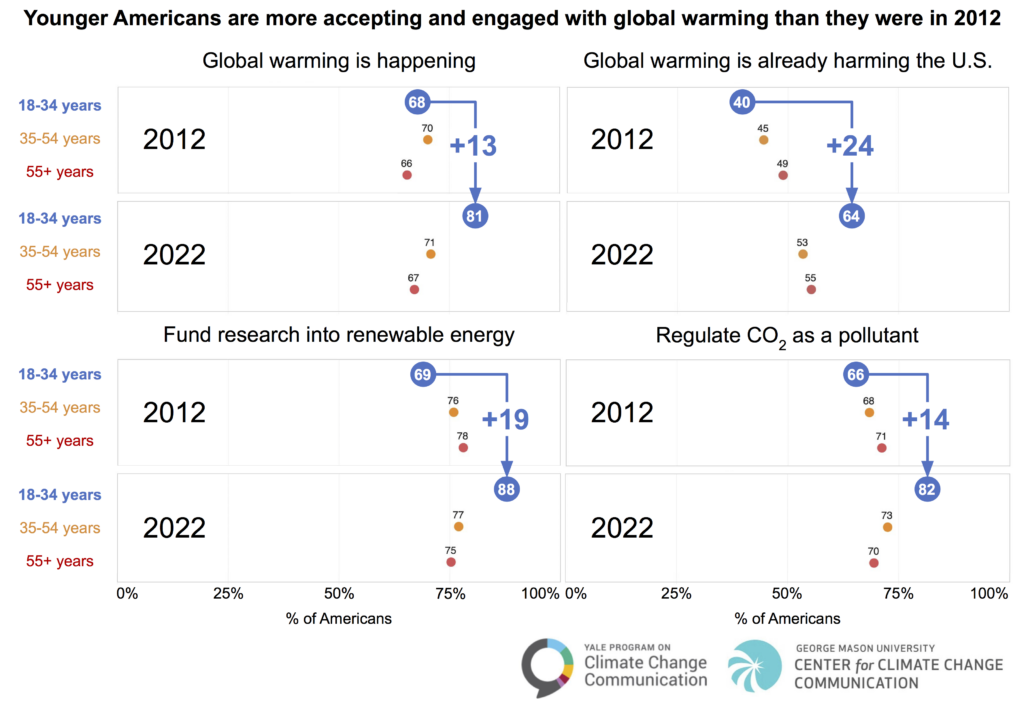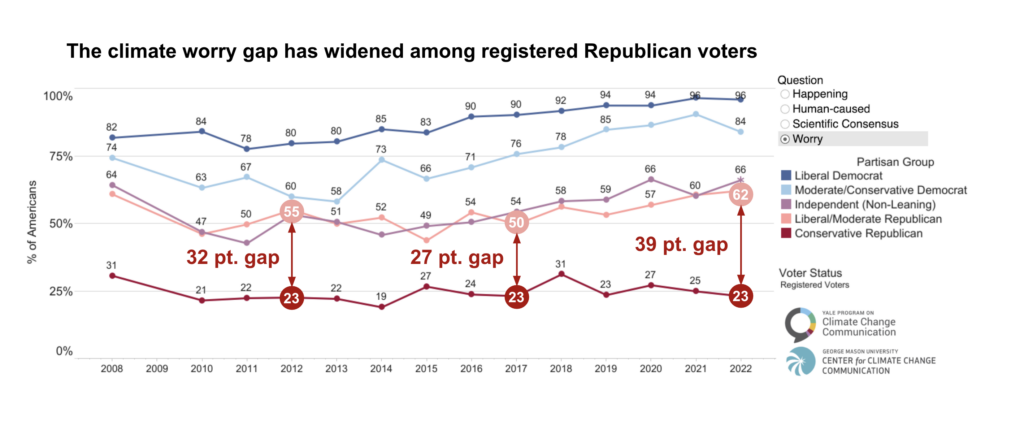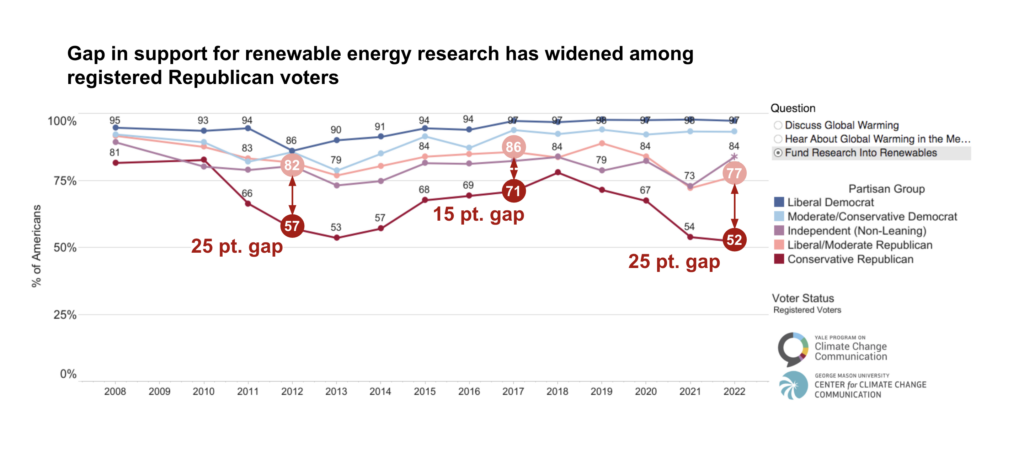Climate Note · Dec 15, 2022
Younger Americans are growing more worried about global warming
By Jennifer Marlon, Seth Rosenthal, Matthew Goldberg, Matthew Ballew, Edward Maibach, John Kotcher and Anthony Leiserowitz
Filed under: Policy & Politics, Audiences and Beliefs & Attitudes

We are pleased to announce the latest release of Climate Change in the American Mind (CCAM) data and the update to our interactive data visualization tool – the CCAM Explorer. The data and tool include two additional years of public opinion about climate change (2008-2022) and enable you to explore Americans’ beliefs, risk perceptions, policy support, and behaviors over time and by different demographic groups.
Here are just a few highlights from the updated tool:
While public acceptance and worry about global warming have increased over the last decade, acceptance and worry have increased faster among younger Americans aged 18-34 compared to older Americans. For example, since 2012, more young adults today accept that global warming is happening (+13% points from 68% in 2012 to 81% in 2022) and already harming the U.S. (+24% from 40% in 2012 to 64% in 2022). Younger Americans have also surpassed older Americans on some measures of policy support, including funding more research into renewables (+19% points from 69% in 2012 to 88% in 2022) and regulating carbon dioxide as a pollutant (+14% points from 66% in 2012 to 82% in 2022). Younger Americans are also much more likely to discuss global warming today than they were a decade ago (+15% points from 19% in 2012 to 34% in 2022).
Although worry about global warming is generally rising across registered voters, conservative Republicans consistently remain the least worried. For instance, the gap in worry about global warming between liberal/moderate and conservative Republicans has grown by 7% points in the last decade (from a difference of 32% points in 2012 to 39% points in 2022) and 12% points in the last five years (from a difference of 27% points in 2012 to 39% points in 2022). This increased gap is largely driven by a growth in worry about global warming among liberal/moderate Republicans while worry has remained relatively low among conservative Republicans.
There is also evidence of increased political polarization in climate policy support over the last five years. Conservative Republicans are much less supportive of funding research into renewable energy today (52% in 2022) than they were in five years ago (71% in 2017), and the difference in support between liberal/moderate and conservative Republicans has grown by 10% points (from a difference of 15% points in 2017 to 25% points in 2022). The current political divide in policy support is comparable to the gap in 2012. We find a similar pattern in support for regulating carbon dioxide as a pollutant: conservative Republicans are less supportive of this policy today (43% in 2022) than they were five years ago (53% in 2017), and the gap between liberal/moderate and conservative Republicans has increased by 12% points (from a difference of 19% points in 2017 to 31% points in 2022).
Please explore the data for yourself using our online interactive tool. The underlying data are downloadable from the Open Science Framework.


